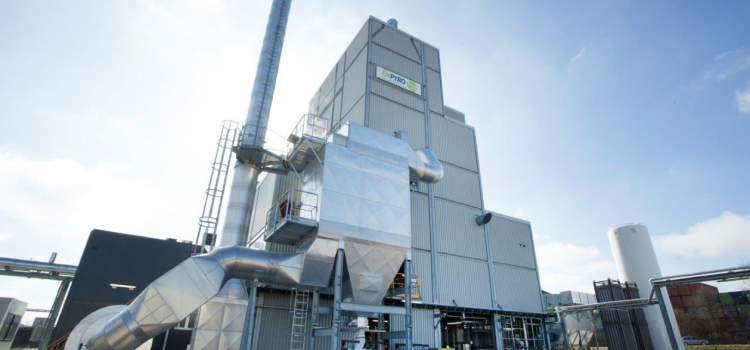The Bio4Products project is employing an innovative conversion technology called fast pyrolysis to transform solid materials like straw and bark into a liquid, which can be used to produce bio-based products. But what exactly is fast pyrolysis, and why is it being used?
Generally, pyrolysis is the thermochemical decomposition of organic material at elevated temperatures in absence of oxygen. Sounds simple? Let’s break it down.
Fast refers to the rapid heating which takes place, helping to maximise the yield. The whole process takes just a few seconds. Pyro- comes from the Greek for fire, and refers to the high temperatures involved in the process. The biomass is heated to around 500°C in the absence of air. In science, –lysis refers to something breaking down. In the case of fast pyrolysis it is the organic material, which decomposes during the heating process to form vapours, permanent gases and charcoal. The vapours can be condensed to form the main product: pyrolysis oil.

But why do it at all?
Liquid pyrolysis oil is easier and cheaper to pump, store and transport than solid biomass, which is much less dense. Importantly, it is also a good technique to unlock complex woody biomass for the production of bio-chemicals and products, which can replace raw materials derived from crude oil.
During the ‘-lysis’ part of the process, the three main building blocks of biomass – cellulose, hemicellulose and lignin – are split up. Bio4Products will demonstrate a new technology to separate these product streams from the oil. The resulting pyrolytic lignin and sugar fractions will be used as raw materials in the production of phenolic resins, roofing material, sand moulding resins, and engineered wood and natural fibre reinforced products.
Find out more about fast pyrolysis on the ‘pyrowiki’ platform.
